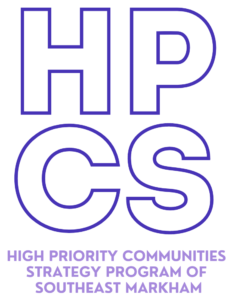 The High Priority Communities Strategy (HPCS) program, established by the Ontario Government, is a community-driven initiative aimed at addressing health disparities experienced by marginalized communities, with a special focus on South Asian women. In collaboration with Carefirst Seniors and Community Services Association and Social Services Network (SSN), CASSA is actively delivering critical services and support to the neighborhoods most affected by these disparities, primarily in Southeast Markham.
The High Priority Communities Strategy (HPCS) program, established by the Ontario Government, is a community-driven initiative aimed at addressing health disparities experienced by marginalized communities, with a special focus on South Asian women. In collaboration with Carefirst Seniors and Community Services Association and Social Services Network (SSN), CASSA is actively delivering critical services and support to the neighborhoods most affected by these disparities, primarily in Southeast Markham.
- Ongoing COVID-19 Response and Recovery: The program implements strategies to enhance testing and vaccination accessibility, particularly in the targeted communities. This includes facilitating convenient testing locations, and mobile vaccination clinics, and providing community outreach to ensure all South Asian women can access crucial COVID-19 services. Additionally, it aims to promote vaccination education and combat vaccine hesitancy in these communities.
- Women’s Preventive & Primary Care: The program is dedicated to minimizing barriers to women’s preventive and primary care. It works towards making healthcare services more accessible by providing transportation assistance, facilitating mobile clinics, and offering multilingual support. This encompasses comprehensive women’s health check-ups, preventative screenings, and health education workshops to empower South Asian women to take control of their health.
- Mental Health and Well-being: The program provides a range of mental health services, including referrals to individual counseling and support groups, as well as connections with mental health professionals who understand the unique challenges faced by South Asian women. These services are complemented by awareness campaigns and workshops to foster mental health resilience and awareness in the communities.
CASSA implements a multifaceted approach to address these priorities, such as launching impactful social media campaigns and organizing workshops to raise awareness about cancer prevention, screening, and mental health. Each campaign and workshop is available in English, Arabic, Bangla, Punjabi, Tamil, and Urdu, making it accessible to a diverse audience. For inquiries about these workshops, please contact Mahdiba Chowdhury (mahdiba@cassa.on.ca) or Sonia Baweja (sonia@cassa.on.ca).
Social Media Campaign
CASSA has taken the initiative to launch an extensive series of impactful social media campaigns with the primary objective of raising awareness in cancer prevention, screening, and mental health. These campaigns not only disseminate valuable information but also serve as a call to action, encouraging individuals to proactively safeguard their physical and mental well-being. We invite you to not only engage with these campaigns but also to download and share them widely to reach a broader audience. Each campaign is available in English, Arabic, Bangla, Punjabi, Tamil, and Urdu.
Breast Cancer

Breast cancer is a disease that can be effectively addressed through screening and preventive measures. However, there are common myths and misconceptions surrounding breast cancer screening that can impede effective prevention. To combat this, it is vital to educate ourselves on a range of topics, including the types of screening tests available, the recommended age to start screening, the frequency of screenings, and more. By equipping ourselves with accurate knowledge, we empower ourselves and those around us to make informed decisions and take necessary steps toward early detection and prevention.
Cervical Cancer

Similarly, cervical cancer is a disease that can be effectively addressed through screening and preventive measures. However, there are common myths and misconceptions surrounding cervical cancer screening that can impede effective prevention. To combat this, it is vital to educate ourselves on a range of topics, including the types of screening tests available, the recommended age to start screening, the frequency of screenings, and more. By equipping ourselves with accurate knowledge, we empower ourselves and those around us to make informed decisions and take necessary steps toward early detection and prevention.
Our Partners



